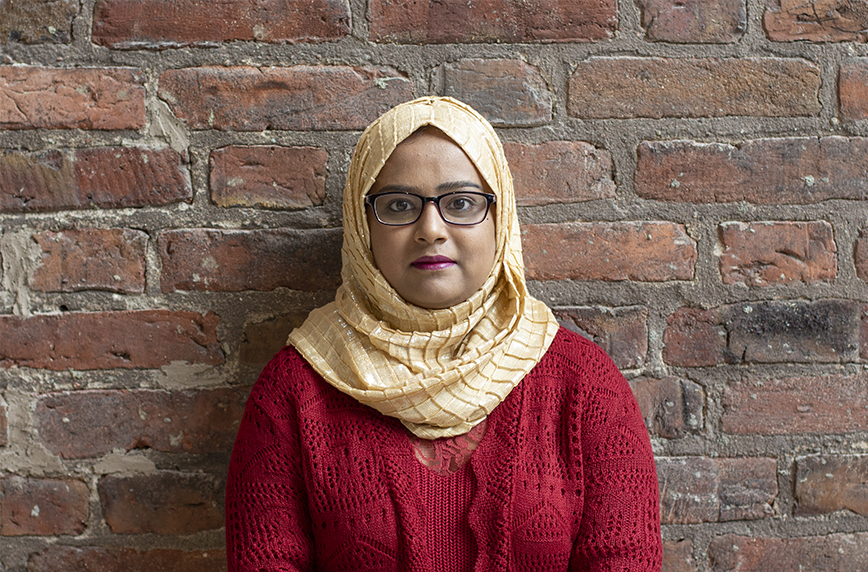The courses are well structured and provide knowledge about ongoing technologies
Umme is from Bangladesh in South Asia. She completed her BSc in Electronics and Telecommunication Engineering at the North South University, Bangladesh. She has a passion for photography and loves cooking different types of cuisine.

Why did you choose this master’s programme at KTH?
I worked for a few years in the IT sector and got to learn how big data is processed, saved and transmitted over a wireless network. I was amazed when I learnt about the usage and benefits of cloud computing. It always fascinates me how so much data can be handled and relayed within seconds to end users. My undergraduate degree gave me insight into the data communication systems and networks that I would like to enhance. I believe this master’s programme at KTH will help me to develop my knowledge.
What are the best aspects of your programme?
The best part of my programme is that it helps me gain both theoretical and practical knowledge via projects, lab work, group assignments and presentations. The courses are taught by teachers who are highly experienced and well-known researchers in their respective fields. The courses are well structured and provide knowledge about ongoing and upcoming technologies.
Have you chosen a specialisation track within the programme? If Yes, which track and why?
I have chosen the Wireless Networking track, one of the three specialisation tracks offered in this course. I am inclined towards data transmission techniques and communication systems over wireless networks, which is why I chose this track.
What are your favourite courses thus far?
Two of my favourite courses are Mobile Networks and Services and the Internet of Things. Both courses were taught by several lecturers and industry researchers. The most exciting part was the opportunity to take part in projects to solve real-world problems.
How do studies at KTH differ from your previous studies?
In my previous studies there was comparatively more emphasis on and scope for theoretical knowledge. However, at KTH, equal importance is attached to practical education. This allows students to develop their supplementary skills and prepare for real-life challenges. Passing any course not only depends on taking a written exam but also on regular assignments, reports and presentations. Teamwork also plays a vital role.
How is student life in Stockholm?
I love how the nature changes with the seasons from the colourful, bright summer to the snowy, chilly winter. There is a lot of beautiful architecture to enjoy, as well as parks, lakes and forests to visit in your leisure time. There are also various Swedish fests to enjoy throughout the year. Stockholm is a very clean city and sustainability is an integrated part of it. However, it is rather expensive, although you get to learn the tricks about how to spend wisely.
How would you describe your time at KTH so far?
Starting with the welcome reception at City Hall, KTH’s Fireworks Concert, Black Friday shopping, THS ARMADA (career fair) and BBQ parties, it has been a beautiful journey so far. It feels great to be able to enjoy student life again after working for a few years.
What do you want to do after graduating?
IoT (Internet of Things) is the new technology for processing and communicating data. After graduating, I plan to dedicate my time to researching the evolution of cellular IoT, challenges and future scope.
What would you like to say to students thinking of choosing KTH for their master’s studies?
I would like to say that choosing KTH for your master’s studies would be the best decision you could make and that you will never regret making such a decision. The ambience of KTH will shape you, inspire you, motivate you and prepare you for a beautiful future.

